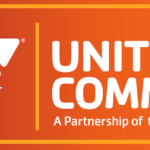I’ve worked with enough healthcare teams to know that communication can make or break a patient outcome. When the right message doesn’t reach the right person on time, things get messy – orders get delayed, test results sit unread, and patients wait longer than they should. In a world where seconds actually matter, having a secure and reliable chat platform isn’t a luxury, it’s survival.
Over the past few years, digital communication in healthcare has gone through a quiet revolution. What used to be endless pager alerts and phone calls has evolved into quick, centralized chat platforms. Yet, with that progress came a new problem – compliance. When patient data started flying across the internet, laws like HIPAA became more than fine print; they became the rulebook. Today, any healthcare team, from small clinics to telemedicine giants, has to balance speed, usability, and strict security. And honestly, few platforms get that balance right.
Why compliance is the real bottleneck in healthcare communication
Most communication platforms fail in healthcare because they were never designed for it. Slack, WhatsApp, and other mainstream messengers were built for convenience, not compliance. They move fast – but too fast for a regulated environment. When you’re dealing with patient charts, lab data, or insurance info, “fast” can quickly become “risky.”
HIPAA compliance is a beast. It requires end-to-end encryption, access control, audit trails, and a signed Business Associate Agreement (BAA). That’s the minimum. Hospitals spend months verifying whether an app meets these standards. Even after approval, IT teams need to constantly monitor user access, update permissions, and make sure no one accidentally uploads sensitive data to the wrong channel. It’s like walking a tightrope – one small mistake, and you’re staring down a legal nightmare.
At the same time, communication can’t slow down. Doctors need to reach nurses, labs need to ping results, and administrators need to coordinate dozens of moving parts daily. The problem is that most platforms solve either the speed or the security, but rarely both.
What healthcare teams actually need
Let’s be honest – no doctor or nurse wants to read a 20-page manual before sending a message. The best systems disappear into the background. They let you focus on patients, not permissions. A solid healthcare chat platform should do a few things really well:
- Secure every message, call, and file. That means encryption at rest and in transit, strict identity management, and role-based access controls.
- Make collaboration effortless. Shared channels, message-to-task conversion, video huddles, and searchable history – all in one interface that doesn’t require an IT translator to set up.
When those two needs come together – security and usability – teams thrive. Work feels lighter. Response times shrink. Patient care gets faster, more coordinated, and less stressful. That’s why picking the right HIPAA compliant chat platform isn’t about software – it’s about survival in a fast-paced, high-risk world.
Chanty – simplicity with compliance baked in
Chanty keeps things lean, fast, and compliant without dragging you through setup manuals. It’s an all-in-one tool that brings chats, voice and video calls, and task management together – all protected by enterprise-grade encryption and European data-security standards.
What makes it stand out is how effortless it feels. You don’t need an IT degree to get started. Within minutes, a clinic can set up secure channels for departments, doctors, or patient-specific discussions. Each message, file, and call is encrypted, and admins can manage permissions with a few clicks.
That combination, compliance with usability, is rare. Chanty gives healthcare professionals something they actually want: a communication tool that doesn’t slow them down. When every second counts, that kind of speed and reliability isn’t convenience – it’s critical.
Microsoft Teams for Healthcare
Teams has become a common choice for large hospital networks, especially those already using Microsoft 365. Its advantage lies in centralization – messaging, file sharing, and video calls live in the same ecosystem. It even offers HIPAA compliance when configured properly with a signed BAA.
But here’s the catch – configuration. Getting Teams fully compliant isn’t plug-and-play. IT departments spend weeks setting permissions, disabling risky integrations, and training users to avoid accidental data sharing. For smaller clinics or private practices without a full-time tech staff, it can be a nightmare. And once everything is running, the interface itself still feels bulky. You can sense it was built for corporations, not caregivers.
TigerConnect and the specialized route
TigerConnect is one of the few chat apps purpose-built for healthcare. It’s been around for years, offering encrypted messaging, priority alerts, and workflow integrations with electronic health record (EHR) systems. It shines in big hospital setups where security policies need to be watertight.
However, the specialization comes with a cost – literally and figuratively. Subscriptions can be steep, and the interface is rigid. For medical teams that value flexibility or need quick adoption, TigerConnect can feel like driving a tank when all you needed was a compact car. It’s secure, yes, but it demands commitment, budget, and patience.
Rocket.Chat and the open-source promise
Then there’s Rocket.Chat – an open-source communication platform with impressive security credentials. It supports on-premise deployment, meaning hospitals can host everything internally. For organizations obsessed with control over their data, that’s a dream come true.
Still, open-source freedom comes with a price tag of its own: maintenance. Someone has to install, configure, and constantly update the system. Without in-house IT engineers, you’re left exposed to bugs or compliance lapses. It’s powerful, but technical. For a busy telehealth team, spending hours in server dashboards isn’t a good use of time.
Zoom for Healthcare
Zoom earned its reputation as the go-to for telemedicine. The “for Healthcare” version is compliant, offering BAAs and encryption strong enough to satisfy regulators. It’s great for consultations, remote sessions, and connecting specialists with patients across the country.
But when it comes to daily team chat, Zoom’s strength becomes its limitation. It’s built around meetings, not workflow. Messaging is minimal, and there’s no real task management. You can’t track follow-ups or convert a conversation into an action item. Everything happens in real time – then vanishes into the void of chat history.
Why usability matters as much as compliance
Here’s something I’ve learned the hard way: the most secure system in the world is useless if people refuse to use it. You can throw a fully HIPAA-compliant, military-grade platform at a medical team, but if it’s clunky or confusing, they’ll find a workaround. Usually, that “workaround” means WhatsApp or personal email, which defeats the entire point of compliance.
That’s where Chanty’s simplicity wins. It meets the legal requirements while still being approachable enough for every staff member to adopt instantly. No lengthy onboarding. No dozen-step logins. No “we’ll use it someday” attitude. The faster people adapt to a system, the safer your communication becomes, because you’ve removed the temptation to use insecure tools out of frustration.
How to choose the right platform for your healthcare team
If you’re evaluating secure chat systems right now, here’s what I’d look at before signing a contract:
- Compliance by default. Does the platform provide end-to-end encryption, audit logs, and a signed BAA out of the box?
- Ease of use. Can your least tech-savvy employee log in and start communicating within five minutes?
Everything else – integrations, storage limits, interface design – comes after those two. If a product fails either test, it’ll cause more headaches than help.
Bottom line
Healthcare doesn’t need more software. It needs smarter software – tools that protect patient data while keeping humans in the loop. The ideal platform respects both the urgency of clinical work and the reality of compliance.
Chanty manages to do exactly that. It’s simple enough for a nurse to message a doctor in seconds, and secure enough to satisfy HIPAA auditors. It turns communication into action without sacrificing safety.
Because at the end of the day, technology in healthcare should do one thing – help people help others faster. And if a chat app can do that while keeping every message safe, that’s not just good software. That’s good medicine.
Throughout the year, our writers feature fresh, in-depth, and relevant information for our audience of 40,000+ healthcare leaders and professionals. As a healthcare business publication, we cover and cherish our relationship with the entire health care industry including administrators, nurses, physicians, physical therapists, pharmacists, and more. We cover a broad spectrum from hospitals to medical offices to outpatient services to eye surgery centers to university settings. We focus on rehabilitation, nursing homes, home care, hospice as well as men’s health, women’s heath, and pediatrics.
Disclaimer: The content on this site is for general informational purposes only and is not intended as medical, legal, or financial advice. No content published here should be construed as a substitute for professional advice, diagnosis, or treatment. Always consult with a qualified healthcare or legal professional regarding your specific needs.
See our full disclaimer for more details.







